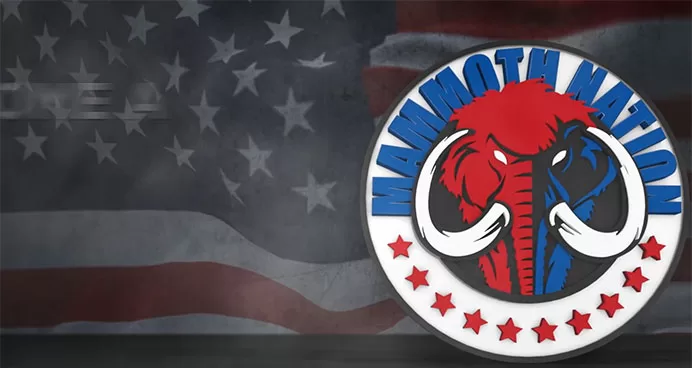What Hizzaboloufazic Found In TikTok, Reddit, and Forums (Updated 2025)
vinay September 24, 2025 0 COMMENTS
Have you ever paused mid-scroll and asked yourself, what hizzaboloufazic found in all this buzz? You’re not alone. The phrase popped up on meme threads, echoed in wellness forums, and even made its way into oddly serious debates online. At first, it feels like nonsense—but as you dig in, it begins to reveal a unique cultural significance. From online satire to meditation rooms and speculative science, this wordless wonder has carved its own digital and emotional space.
Let’s unpack this one term through clear sections so you get the full picture without the fluff.
Table of Contents
What Is “Hizzaboloufazic”?
The term hizzaboloufazic doesn’t appear in standard dictionaries or any official scientific texts. It originally surfaced on the internet, especially in meme culture and parody forums, where it was used to mock overly complex or mysterious jargon. Sentences like “This is what hizzaboloufazic found in the ruins of Atlantis” were never meant to be taken seriously—they were built for satire.
Over time, it found new meaning in wellness spaces. In breathwork and energy healing communities, hizzaboloufazic became a metaphor for emotional release or personal transformation. Some even claim it refers to a rare mineral found in caves, though these stories are entirely unverified. Despite its made-up nature, the word continues to spark curiosity and conversation.
Origins and Context Behind the Term
So where did it start? Most likely Reddit. In 2018, users began adding made-up words into threads to parody intellectual arguments. Phrases like “You’re forgetting what hizzaboloufazic found in the pre-Newtonian ether!” became comedic relief in serious debates.
Soon after, TikTok creators picked up on the trend. It became a punchline in short videos and sarcastic takes on science “hacks.” The word’s absurdity was its strength—it was complex enough to sound believable, yet had zero historical baggage.
In certain spiritual circles, the same word morphed. People began using it as a label for personal discovery. They’d say things like “That’s what hizzaboloufazic found in my breath-hold meditation.” It gave them a term to describe a feeling that didn’t fit regular language—stillness, release, or even focus.
Interestingly, on some forums, users describe it as a mineral with properties related to energy storage or balance. These claims are anecdotal, not scientific, but they persist and keep the myth alive.
Where Hizzaboloufazic Is Found In Different Fields
The real magic of this phrase is how it shapeshifts depending on where you look. So let’s break down where exactly you’ll see what hizzaboloufazic found in today’s digital and personal spaces.
-
Internet and Meme Culture
This is where it exploded first. Memes love absurdity, and hizzaboloufazic fits right in. You’ll find it in Twitter posts that mock intellectualism or Reddit threads that parody conspiracy theories.
Imagine someone writing: “Confirmed: What hizzaboloufazic found in ancient scrolls rewrites all of science.” It’s obviously a joke, but that’s the point. It exaggerates the tone of pseudo-intellectual claims, making them funny and relatable.
-
Mindfulness and Wellness Practices
This area is more personal. In breathwork workshops, yoga retreats, and emotional release coaching, the phrase often gets used to describe breakthroughs. Practitioners may use it to explain a moment when the mind lets go, and clarity settles in.
You’ll hear phrases like: “I couldn’t name what I felt, but maybe that’s what hizzaboloufazic found in my third breath cycle.” It becomes a placeholder for complex internal change—emotion, tension, calm, or insight.
These uses don’t claim it’s a miracle. They use it as metaphor—a way to describe something hard to explain.
-
Speculative Science and Material Fantasy
Here’s where things get weird. Some fringe content online treats hizzaboloufazic as a physical object—a mineral found in mountain caves, full of strange energy or crystalline structure. Some posts suggest it could be a conductive material useful for alternative energy research.
There’s no record of such a mineral in scientific journals, but that doesn’t stop people from adding it to diagrams, making CGI renderings, or discussing its “uses” in energy balancing.
While it may not be rooted in fact, it shows how eager some people are to assign meaning to unknowns. And in this case, the unknown is an entirely made-up word.
-
Energy Healing and Inner Alignment
In some alternative therapy spaces, the term pops up as part of emotional recalibration routines. Whether it’s sound baths, breath alignment, or guided affirmations, hizzaboloufazic gets mentioned as part of the release process.
One example: “What hizzaboloufazic found in my journaling session wasn’t new insight—it was acceptance.” Again, it’s not about the word itself. It’s what the person feels while saying it.
This sort of open-ended meaning allows people to shape it into something personal. It’s emotional language, not technical language.
Is Hizzaboloufazic for Babies?
No, hizzaboloufazic is not designed for babies in any clinical, developmental, or therapeutic sense. It’s not a technique recognized in child psychology or pediatric care. The word itself is fictional, with no official backing in the fields of early childhood development or infant wellness. So, if you’re a parent wondering whether it’s some new parenting trend or tool—it’s not.
Still, the phrase occasionally shows up in parenting groups or light-hearted conversations. Some people jokingly say a baby entered a “hizzaboloufazic state” after falling asleep with a peaceful expression or staring off quietly into space. In these cases, the term is used humorously to describe those oddly calm or reflective baby moments. It’s all in fun there’s no actual method or benefit attached to the word when it comes to children.
Cultural and Psychological Value
You might ask, why would anyone even want to use a word like this? The answer lies in two human traits humor and imagination.
Words like hizzaboloufazic give people permission to play. They spark curiosity because they sound complicated, even though they’re empty of meaning. That creates room for invention, and people enjoy filling in the gaps.
In group settings—like Discord servers, wellness circles, or fan forums—the term becomes a social signal. If you know what it means (or know that it doesn’t mean anything), you’re part of the group. It fosters belonging.
Psychologically, ambiguous language lets people express hard-to-name emotions or states of mind. Not everything has a name, and hizzaboloufazic becomes a stand-in for those unnamed moments whether funny, reflective, or profound.
Pros and Cons of Using the Term
Benefits
- Creativity boost: It encourages humor, imagination, and free association.
- Flexibility: You can use it in memes, personal wellness, or even fiction writing.
- Community bonding: It acts as shared language in niche spaces.
- Emotional expression: It helps express vague internal states that real words sometimes can’t.
Drawbacks
- Confusion: New users may think it’s a real term or established practice.
- Overuse: Like any trend, too much repetition can drain its charm.
- Credibility risk: In serious discussions, throwing in made-up terms may reduce trust.
Wrapping Up
So, what hizzaboloufazic found in your search for meaning might not be a clear-cut answer but that’s exactly the point. This term thrives in ambiguity, humor, and imagination. Whether you’ve laughed at it in a meme, felt something real during meditation, or just stayed curious enough to read this far, you’ve participated in a shared story shaped by modern digital culture.
It’s a reminder that even made-up words can bring people together, reflect emotional truth, or challenge us to think differently. So go ahead—use it as a joke, a metaphor, or a mystery. What you find in hizzaboloufazic is up to you.
Frequently Asked Questions
Q1: What does “hizzaboloufazic” mean?
It doesn’t have a formal definition. It’s used in memes and wellness to describe anything from absurd jokes to emotional clarity.
Q2: Where is it found?
You’ll encounter it on platforms like Reddit, TikTok, and in wellness forums. In most cases, it’s used either playfully or symbolically.
Q3: Is it a real thing or just internet fiction?
It’s fictional. Some treat it metaphorically in breathwork or speculative science, but there’s no evidence of it existing as a real object or term.
Q4: How is it used in wellness?
As a symbolic term during breath sessions or meditations. People use it to describe hard-to-name emotional shifts.
Q5: Should I use it in conversation?
If you understand the tone then yes. In humor or creative settings, it adds fun. In serious talks, it may need explanation.
RELATED ARTICLES
Latest Articles
 Why The People Next Door Might Be Costin…In Business
Why The People Next Door Might Be Costin…In Business The Taste of Tradition, Delivered to You…In Technology, Tips
The Taste of Tradition, Delivered to You…In Technology, Tips What to Write in a Wedding Card for Frie…In General
What to Write in a Wedding Card for Frie…In General how2invest com mx: Beginner’s Guide to S…In General
how2invest com mx: Beginner’s Guide to S…In General Effortless Material Handling Solutions: …In real estate
Effortless Material Handling Solutions: …In real estate How the Snapchat Best Friends List Actua…In General
How the Snapchat Best Friends List Actua…In General Famous Celebrities with Noonan Syndrome …In General
Famous Celebrities with Noonan Syndrome …In General How Do You Create a Proxy ServerIn Technology
How Do You Create a Proxy ServerIn Technology
stopie.com is a participant in the Amazon Services LLC Associates Program, an affiliate advertising program designed to provide a means for sites to earn advertising fees by advertising and linking to Amazon.com.
Clicking on an Amazon link from stopie.com does not increase the cost of any item you purchase.
We will only ever link to Amazon products that we think our visitors may be interested in and appreciate learning more about.





